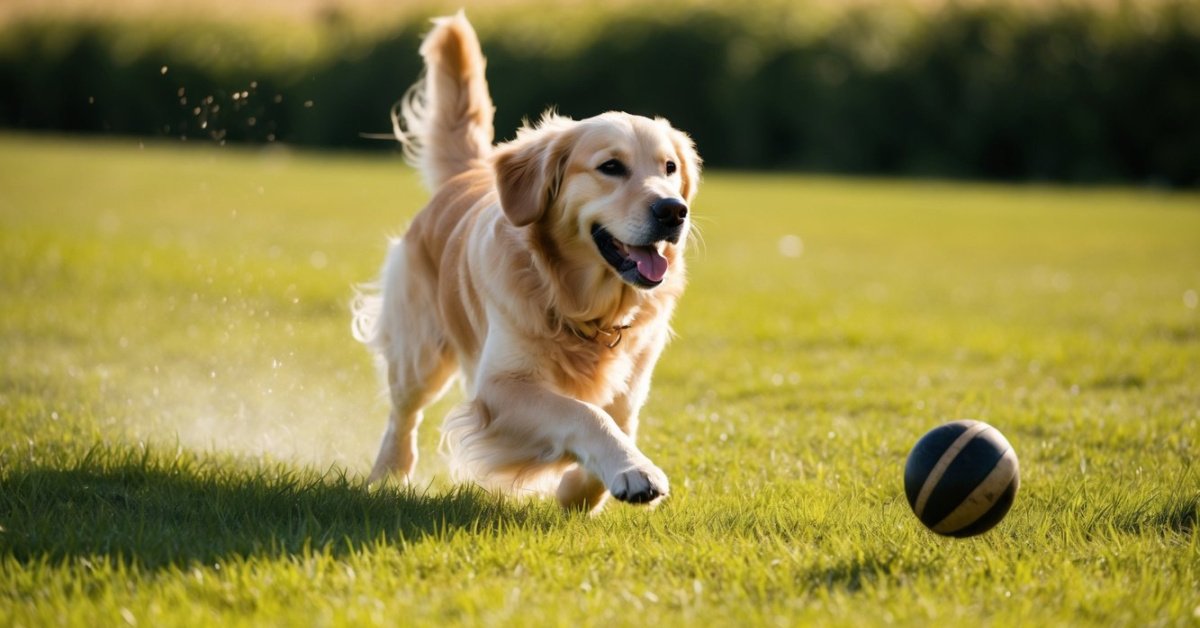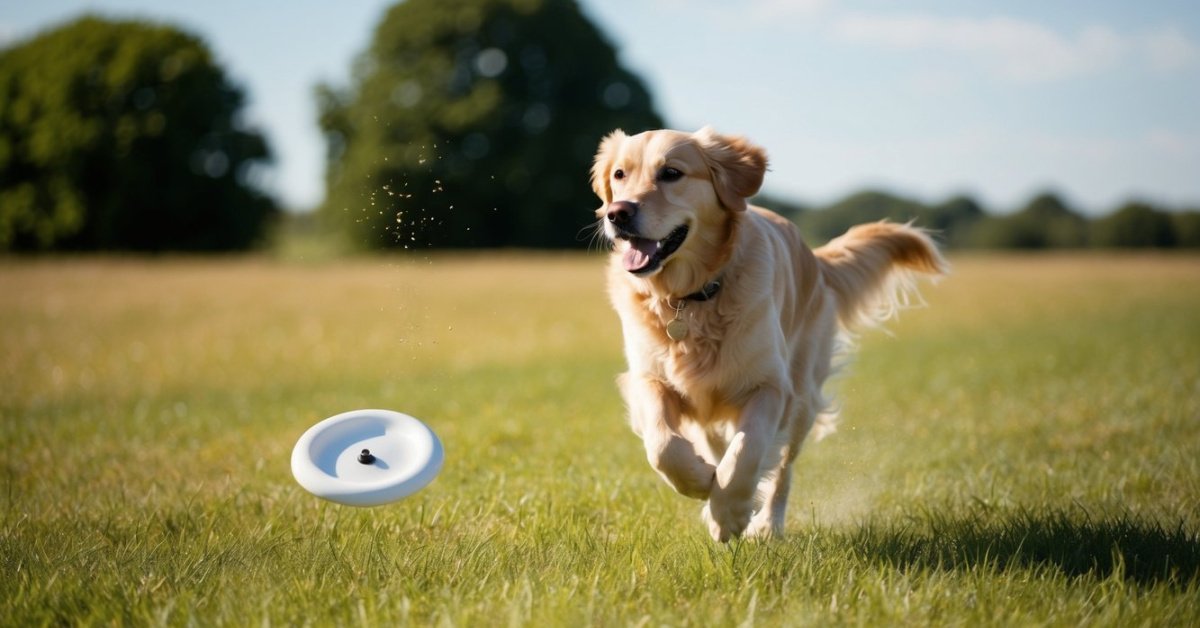Golden Retrievers have a reputation for being one of the friendliest dog breeds out there. Their wagging tails and eager smiles can brighten anyone’s day. But what’s behind this lovable nature? Is it just their upbringing or is there something deeper at play?
Understanding Golden Retriever Temperament
Golden Retrievers are known for their friendly and sociable nature. Several factors contribute to their temperament, including historical background and genetic influences.
Historical Background
Golden Retrievers originated in Scotland in the late 19th century. Their development aimed to create a versatile hunting dog, suitable for retrieving game from both land and water. Breeders focused on crossing the now-extinct Yellow Retriever with the Tweed Water Spaniel, adding Bloodhound and Irish Setter genes to enhance their abilities. This breeding approach set the foundation for their friendly disposition, as these dogs needed to work closely with humans in various environments.
Genetic Factors
Genetic studies indicate that temperament is significantly influenced by specific traits inherited from their ancestors. The social nature of Golden Retrievers arises from selective breeding aimed at enhancing their friendly behaviors. Traits such as high intelligence, eagerness to please, and a non-aggressive outlook are prevalent. Research shows that genes impacting serotonin production can also play a role in anxiety and sociability, further explaining their affable demeanor.
The Role of Socialization
Socialization significantly shapes a Golden Retriever’s friendly behavior. Positive experiences during their formative months create the foundation for their sociable nature.
Early Socialization Practices
Early socialization practices involve exposing Golden Retriever puppies to diverse people, animals, and environments. I encourage puppy owners to introduce their pets to various sights, sounds, and scents. Engaging in structured playdates with other dogs aids in developing social skills. Enrolling in puppy training classes promotes positive interactions and reinforces good behavior. The first three to sixteen weeks of a puppy’s life are critical for social development; experiences during this period directly influence their future temperament.
Impact of Environment
The environment surrounding a Golden Retriever contributes to its friendliness. A loving and supportive home fosters a well-adjusted dog. I recognize that frequent exposure to different situations, such as parks, busy streets, and public spaces, enhances a dog’s adaptability. Positive reinforcement in new environments builds confidence and encourages an open, friendly demeanor. Furthermore, interacting with various age groups, including children and seniors, enables them to develop empathy and patience. The overall atmosphere—a mix of social experiences and affection—reinforces the naturally friendly traits inherent in Golden Retrievers.
Behavioral Traits of Golden Retrievers
Golden Retrievers exhibit a range of behavioral traits that enhance their reputation as friendly companions. Their affectionate nature and playful demeanor make them ideal pets for families and individuals alike.
Affectionate Nature
Golden Retrievers thrive on human interaction and express love through physical affection. They enjoy cuddling, giving kisses, and leaning against their owners. This loving behavior often stems from their history as companions to hunters—working closely with humans forged strong bonds. Positive reinforcement during training reinforces their affectionate tendencies. I’ve noticed that when I shower them with love and attention, their friendly behavior shines even brighter.
Playfulness and Energy Levels
Golden Retrievers are known for their high energy and playful spirit. They engage enthusiastically in games like fetch and tug-of-war. Regular playtime is essential for maintaining their mental and physical well-being. I’ve found that daily walks and interactive play not only help to release excess energy but also strengthen our bond. Their playful nature encourages social interactions with other dogs and humans, further enhancing their friendly disposition.
Training and Friendliness
Training shapes the friendliness of Golden Retrievers, emphasizing their need for socialization and positive interactions. Techniques used during training can significantly enhance their naturally welcoming demeanor.
Positive Reinforcement Techniques
Positive reinforcement techniques foster a friendly environment for Golden Retrievers. These methods include rewarding desired behaviors with treats, praise, or playtime, making the learning process enjoyable. For instance, when my Golden responds to commands like “sit” or “stay,” I offer a treat promptly. This approach builds their confidence and encourages them to repeat good behaviors.
Incorporating socialization into training further enhances their friendliness. By introducing them to new experiences, other dogs, and diverse people during training sessions, I help them develop a well-rounded personality. Puppy training classes offer structured environments that facilitate these interactions, boosting the dog’s comfort and adaptability.
Building Trust and Bonding
Building trust and bonding with Golden Retrievers creates a solid foundation for their friendly behavior. Establishing routines provides predictability and security, allowing my dog to feel at ease. Spending quality time engaging in activities they enjoy, such as walks or games, reinforces our connection.

« The History of Golden Retrievers: From Scotland to Beloved Family Pets Today
Why Do Golden Retrievers Shed So Much? Understanding Their Shedding Patterns and Solutions »
Gentle handling during training sessions also bolsters their trust. I use calm, encouraging tones to communicate, making them more receptive to training. Regular eye contact and affection, like petting and cuddling, strengthen our bond, fostering a sense of safety and love. The more trust I build, the more my dog responds positively, showcasing their naturally friendly disposition.
Conclusion
Golden Retrievers truly embody the essence of friendship and joy. Their cheerful demeanor and loving nature make them not just great pets but also wonderful companions. I’ve seen firsthand how their friendly traits can light up a room and bring people together.
It’s fascinating to think about the blend of genetics and upbringing that shapes their personalities. With the right socialization and training, these lovable pups can thrive and share their warmth with everyone around them. Whether it’s through playful antics or gentle cuddles, Golden Retrievers have a special way of making our lives brighter. I can’t imagine a better furry friend to have by my side.











